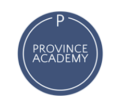College Students

Induction Training for freshers
- Universal Human Values: This module will help the students to explore and experience the joy of learning, handle the peer pressure, and get insight to the universal human values.
- Policies & Procedures: Learn about the institution’s policies, rules and regulations. This ensures you’re on the right track from the start.
- Departmental Training: Get familiar with your specific department, its goals, and the people you’ll be working with.
- Technical and Creative Skills: This will involve industry-specific skills needed for your role, showcasing and fine-tuning your creative skills etc.
- Team Building Activities: Break the ice with your colleagues! These activities are a fun way to get to know each other and build rapport.
Faculty Induction Trainings
- Mentorship Program: Introduce faculty to the mentorship program, pairing them with experienced colleagues for guidance and support.
- Faculty Committees and Governance: Inform faculty about available committees, governance structures, and ways to get involved in the academic decision-making process.
- Building Relationships with Students: Promote strategies for building rapport with students, fostering a positive learning environment, and establishing clear communication channels.


Teaching Index Improvement Workshops
- Targeted Skill Development: Workshops focus on specific areas assessed by TIs, allowing educators to address their strengths and weaknesses effectively.
- Evidence-Based Strategies: Participants learn research-backed methods for effective lesson planning, engaging instruction, and formative and summative assessment.
- Collaboration and Peer Support: Workshops provide a platform for educators to share best practices, exchange ideas, and gain valuable insights from colleagues.
- Increased Confidence: By honing their teaching skills, educators gain confidence in their abilities, leading to a more positive classroom environment.
NEP 2020 readiness programme
- 5+3+3+4 curricular structure: This replaces the 10+2 system, introducing a play-based foundation stage from ages 3-8.
- Focus on core competencies: The curriculum will emphasize critical thinking, communication, collaboration, and problem-solving skills.
- Multilingualism: NEP promotes multilingualism with a focus on mother tongue languages and English.
- Holistic Assessment: Assessment will move beyond rote learning to measure a wider range of skills and knowledge.
- Teacher Training: The policy emphasizes the importance of continuous professional development for teachers.

